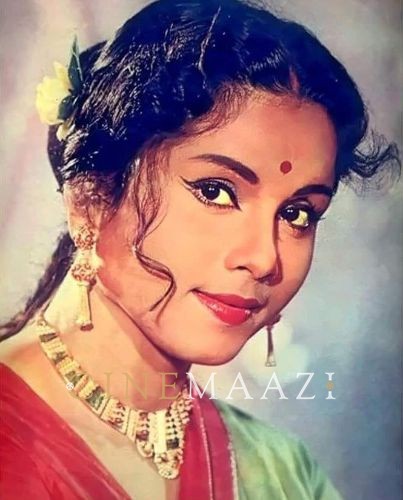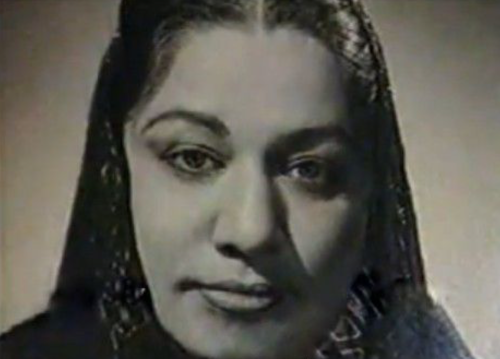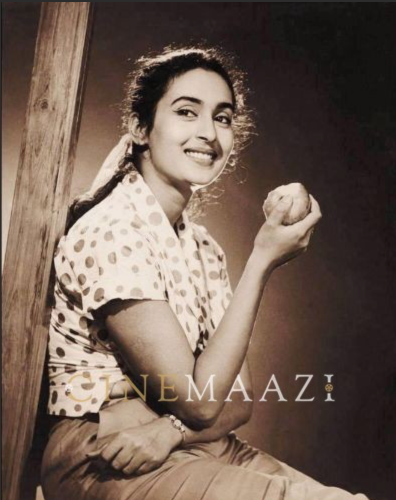Reel Life, Real Life - Shah Rukh Khan
02 Nov, 2021 | Archival Reproductions by Meera Joshi
Granted that I'm stylish but then I'm not a method actor. I'm Shah Rukh Khan first and then the character I play.
"You know," he begins, "people think I'm a lucky mascot. On every set I've visited for the past two days the director has insisted that I give a shot."
Shah Rukh Khan has given consecutive hits. Deewana, Chamatkar and Raju Ban Gaya Gentleman have all done well and his most recent release, Dil Aashna Hai did get a good opening crowd. So, he's busy naturally. He's had two films mahurats in one day and there's always a constant stream of producers waiting to meet him. In between shots, he answers questions. He lights a cigarette. He notices me looking askance and sheepishly confesses that his New Year resolution has already been broken. "I know I'd said I'd give up smoking totally, but after five days of sheer torture I've decided life's too short to prolong such agony."
The four films he has on the floor right now are Ramesh Sippy's tentatively titled Pyaarana, Venus' Baazigar, Prem Lalwani's Guddu and Yash Chopra's Darr. He was originally supposed to do the negative role in Darr. Although he'd liked the script he didn't have the dates. The role went to an enthusiastic Aamir who's just walked out of the film after some differences with Yash Chopra over the film's finale. Since Shah Rukh is now in a position to accommodate Darr he's taken it up. Before doing this though, he checked with Aamir to confirm whether he had opted out.
"You know," he begins, "people think I'm a lucky mascot. On every set I've visited for the past two days the director has insisted that I give a shot."
Shah Rukh Khan has given consecutive hits. Deewana, Chamatkar and Raju Ban Gaya Gentleman have all done well and his most recent release, Dil Aashna Hai did get a good opening crowd. So, he's busy naturally. He's had two films mahurats in one day and there's always a constant stream of producers waiting to meet him. In between shots, he answers questions. He lights a cigarette. He notices me looking askance and sheepishly confesses that his New Year resolution has already been broken. "I know I'd said I'd give up smoking totally, but after five days of sheer torture I've decided life's too short to prolong such agony."
The four films he has on the floor right now are Ramesh Sippy's tentatively titled Pyaarana, Venus' Baazigar, Prem Lalwani's Guddu and Yash Chopra's Darr. He was originally supposed to do the negative role in Darr. Although he'd liked the script he didn't have the dates. The role went to an enthusiastic Aamir who's just walked out of the film after some differences with Yash Chopra over the film's finale. Since Shah Rukh is now in a position to accommodate Darr he's taken it up. Before doing this though, he checked with Aamir to confirm whether he had opted out.
.jpg/img20210403_18023232%20(3)__342x480.jpg)
"This year I'm going to work in a different set of films than I did last year. I'll be playing a gamut of roles--character actor, comedy, negative, action. And the mood of each film will be different. Baazigar is based on Kiss Before Dying. It's a hardcore commercial film and we still have to decide on the ending. We've worked out four or five options, all of which could be justified."
Shah Rukh doesn't believe in a role being negative or positive: "There are shades to all the characters I'm playing. Some are dark grey too but none of them are what you might call those of a conventional baddie--say the type of roles Gulshan Grover takes on." And he also doesn't believe that doing one negative role will brand him as a villain for life. "If mine is a strong negative character, I'm the hero of the film."
Nor does he think that because he's the hero of the film, he has to figure in every shot. For example, in Raju Ban Gaya Gentleman when the goons beat him almost to a pulp, he barely retaliates. "In the film I'm an ambitious guy, there is a kind of confidence in me, but basically I'm a softie. If I'd suddenly started pulling punches, it would have been totally out of tune with the character."
.jpg/img20210403_18030013%20(3)__585x480.jpg)
Working with the Aziz Mirza unit was an exhilarating experience for this actor. "We vibed well, there was a lot of give-and-take and we worked as one big happy family." About Kundan Shah's Kabhi Haan Kabhi Naa he says, "If I'm not boasting, I'd like to state that I've really given a good performance in the film. I don't think I'd ever be able to play that role again, I'd need to grow as an actor before I could repeat it."
He has also been signed on by Manmohan Desai for Pyar Beshumar and by Rakesh Roshan for Karan Arjun co-starring Ajay Devgan. When a producer wants Shah Rukh for his film, he has to have a bound script ready. And no changes are allowed at a later stage. He stresses, "If the script still has to be finalised I sit in on the sessions. If it's a two-hero subject I insist on a joint narration so that everybody is clear about everything from the very start."
A role that Shah Rukh's excited about is Ketan Mehta's Oh My Darling, Yeh Hai India. "It's about events that happen to a struggling actor in one night. There are fifteen songs in the film, not all of full-length duration, of course--some last just thirty seconds. The struggler takes on the role of whoever he encounters and goes through 18 different characters in one night." The shooting will be completed in 30 nights and mainly on locations between Marine Drive and Churchgate."
Since hits have become a rarity, an actor tries to cash in on success as quickly as possible. He jacks up his price pronto. So does Shah Rukh think he's getting what he's worth? Answer. "For my first film (Deewana) I was paid Rs. 51,000. Now, as many would like to believe, I'm squeezing the industry dry. Jokes apart, I'm certainly not getting as much as some magazines are fond of quoting, nor is it as little as what I got for my first few films.
"How can I judge my own commercial standing?" he asks. "The film-maker who comes to sign me obviously knows what I'm worth. He must have already worked out the economics of his film before coming to me so let him decide what he should pay me. I do quote a price but if what he offers is less I don't haggle. Money doesn't matter, the role does."
Shah Rukh feels that someone who's genuinely making a good film will not play dirty. But that doesn't always happen. There have been cases where a producer has made money and suffered a bout of amnesia. "So okay, by not paying me my dues, he's a little richer. But let me tell you that I've never been rooked. Sometime, somehow I'll get what's due to me. In the future, the same guy may come to sign me for ten times the amount he owes me."
.jpg/img20210403_18030013%20(2)__590x480.jpg)
One thing Shah Rukh hates doing is signing the same type of roles. "That's so boring," he says. "My presence in a film should be like an ISI stamp. They'll come to see the film because they know that I only work in good films and can guarantee them the unexpected."
Perhaps it was this desire to spring surprises that made Shah Rukh act in Mani Kaul's film Idiot. He recalls, "Wow, was it an experience working with Mani. He'd painstakingly explain what he wanted me to do and most of his directions went way over my head. Then I'd tell him that I'd do, what I'd understood and we'd see whether both of us were on the same wavelength. But I guess what I did in front of the camera was what he wanted since he did say he liked what I'd done. I'd like to believe I've added my touches to the film. Throughout the film I haven't blinked."
Sheepishly he adds, "I've never understood any of Mani's films. Maybe I have a low IQ. The character in Uski Roti moved so slowly (he imitates the speed by taking a full 30 seconds to move his head at a 45-degree angle). Isn't that a total contrast to what I do? It's the complete opposite of what I am. I walk, talk at jet speed. And I still think I'm fast in Idiot. My six years in theatre helped when I did this film. Working in it was like going through an extended workshop. I once told Mani he and Manmohan Desai should get together to make a film. The outcome would be mind-boggling."
Shah Rukh's rise to success has often been attributed to his mannerisms. But the audience could get fed up of him. The actor reacts with surprise and maintains that the constant use of his hands is not a cultivated trait. "Granted that I'm stylish and I'll confess that I'm not a method actor. But let's be clear about one thing, first and foremost I'm Shah Rukh Khan and then the character I play on screen. I'm just made that way. Hands are an actor's weakest link and since I'm practically always in jeans that have no pockets, I have to use them in some way. Mainly I use them for emphasis, to drive a point home.
"In King Uncle Raakesh told me to avoid using my hands and I've given in to his wishes. I'm restless, there's this excess energy in me which makes me move fast."
His dialogue delivery is believed to be another weak point with him. He speaks either too fast or too haltingly. For the hesitant throw of voice he blames his habit of thinking in English and speaking in Hindi. Some of the lines he's given irritate him and he just wants to get them over with. "They make me say words I wouldn't even dream of uttering in real life," he grumbles.
There's a cockiness about Shah Rukh. But, it seems, what you see is just a front. Beneath all the bravado there is a nervous young fella whose hands shiver when he's about to give a take. He believes that once confidence overpowers you, you're done for. That's the end of your growth as an actor. "I am sure of myself when I'm working but there's always that niggling doubt about whether the shot was okay, just okay or perfect."
Credit for the success of his films which have been released has gone to his co-stars or to the film's music. His detractors say Shah Rukh is incapable of giving solo-hero hits. Eyes flashing, he retorts, "I have to prove nothing to anybody. I'm my own best critic. I wasn't happy with my performance in Deewana and I've said so, yet I have been praised for it. Critics don't matter, it's public opinion that counts. I've always done my work diligently and if you ask me, no hero is capable of drawing in the crowds on his own steam.
"I take pains over my performance and am always around to help my co-stars. I make it a point to go over our scenes together. And when the work is appreciated I don't expect credit for it. It's the man calling the shots who rightly deserves it. Or the flak. After all, he's put the whole film together. I respect the director and his word is final. My first three films have done excellent business. Praising or blaming an actor is like saying a film did well because they used Fuji colour or Kodak colour. I'm just the raw stock."
Why has he accepted only a handful of films? "Remember I'm not capable of a solo-hero hit!" he grins. "Fewer films mean fewer mistakes. I'm in a good position today. With restricted assignments I can concentrate on my roles and finish a project in six months. I'm careful about my work and can be quite a pain at times. Since follow up every department--clothes, sets, the whole film, it totally drains me. I can't handle more than five or six films a year."
.jpg/img20210403_18030013%20(4)__242x480.jpg)
For such a committed actor, he seems to be taking it lightly. He does have time for other pursuits. "Films are just a part of life; I can't sacrifice everything for them. I'm refusing many films because most of them would like me to do just what I'd done in Deewana or Chamatkar. I'm not interested in repeating myself. Some of them come up with such awful stories," he says horrorstruck.
Hopeful of better roles, he remarks, "At the end of my career, people will respect me as an actor."
Shah Rukh has also made news with his behaviour with journalists. He's reported to have threatened some and bashed up others. There's a war on. He butts in, "Hey, take it easy, war is the wrong word. When I first came here, five big banners wanted to sign me. That was enough to get magazines interested in meeting me. But I chose to lie low. I wanted my work to speak for me. So they started attacking my private life. I want to make it very clear that if people get personal, I'm going to stop being professional with them. Why write about me when I haven't done anything sensational? I could have flopped and disappeared without a trace. And when I have opened my mouth, they've used quotes selectively to suit whatever they want to say. I won't stand for this. Intrusion into my privacy enrages me and I'll kill for it. Let me be, there are enough problems as it is. I don't want to know how film journalism works."
Getting over his irritation, he grins, "I've tasted one year of success and I'm happy that I made it on my own terms. And I'm proud of my achievements. I'm God's own child." When you remind him that he's earlier said he didn't believe in God, he corrects himself. "There's a God within me and he's as good as bad as I am."
***
This article was orginally published in the November 1993 edition of Filmfare Magazine (pg - 53-55).
124 views
Tags
About the Author
Journalist with Filmfare (1983 - 2013).







.jpg)


